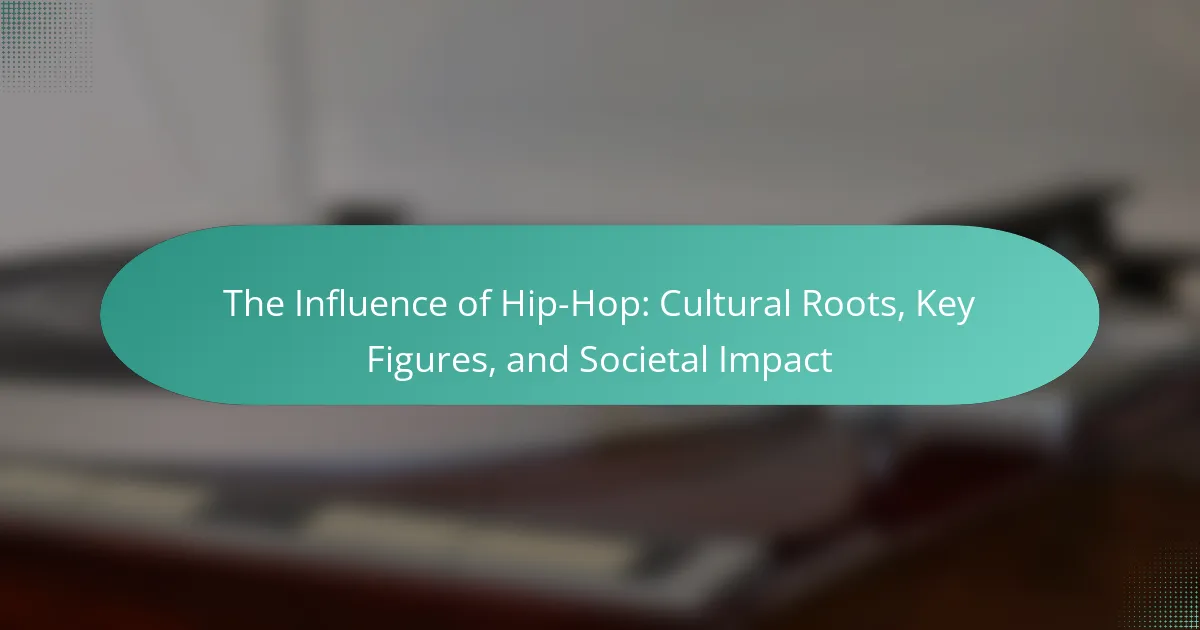Hip-hop is a cultural movement that originated in the Bronx during the 1970s, primarily within African American and Latino communities. It emerged as a response to various social, economic, and political challenges, incorporating key elements such as DJing, rapping, graffiti art, and breakdancing. Influential figures like DJ Kool Herc, Grandmaster Flash, and Afrika Bambaataa played […]

The Shift to Streaming Services: Industry Changes, Consumer Behavior, and Music Accessibility
The shift to streaming services has fundamentally transformed the music industry, leading to a decline in physical sales and a rise in digital consumption. Streaming platforms such as Spotify and Apple Music now dominate the market, accounting for 83% of recorded music revenue in the U.S. as of 2020. This transition has altered revenue distribution, […]
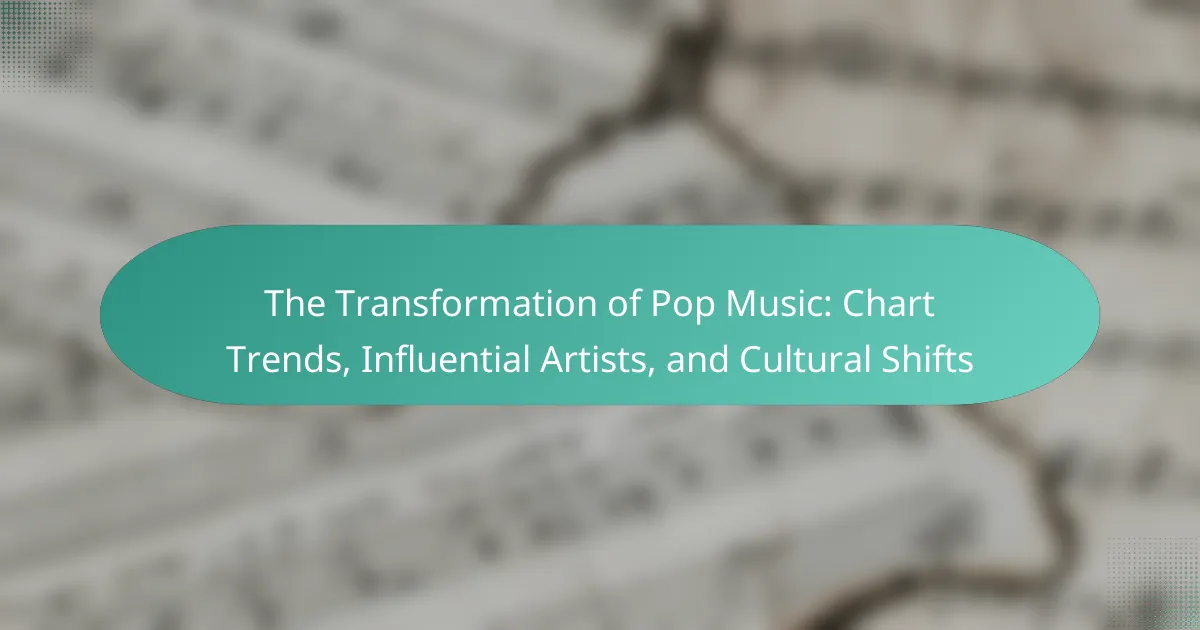
The Transformation of Pop Music: Chart Trends, Influential Artists, and Cultural Shifts
The transformation of pop music encompasses the evolution of its sound, style, and cultural impact from the 1950s to the present. This article examines key trends such as the rise of streaming platforms, genre blending, and the influence of social media on chart success. It highlights influential artists including Michael Jackson, Madonna, and Whitney Houston, […]
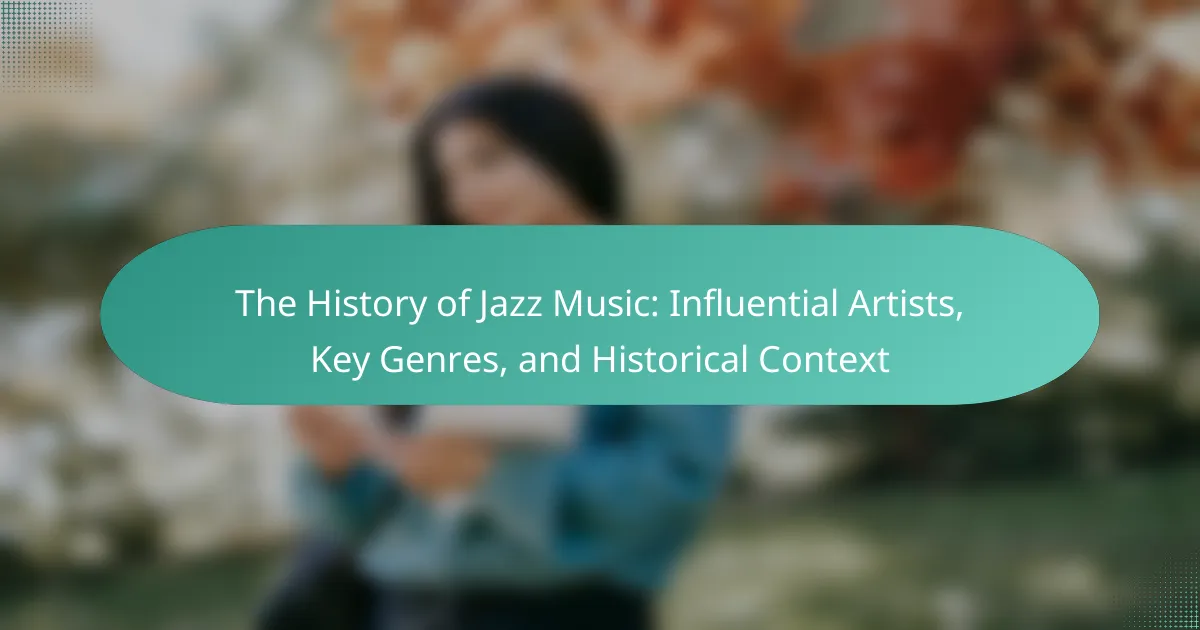
The History of Jazz Music: Influential Artists, Key Genres, and Historical Context
Jazz music is a genre that originated in New Orleans in the late 19th and early 20th centuries, emerging from a mix of African American musical traditions like blues and ragtime. Known for its improvisational style and distinctive rhythms, jazz gained popularity during the Great Migration and reached new heights in the 1920s, often referred […]
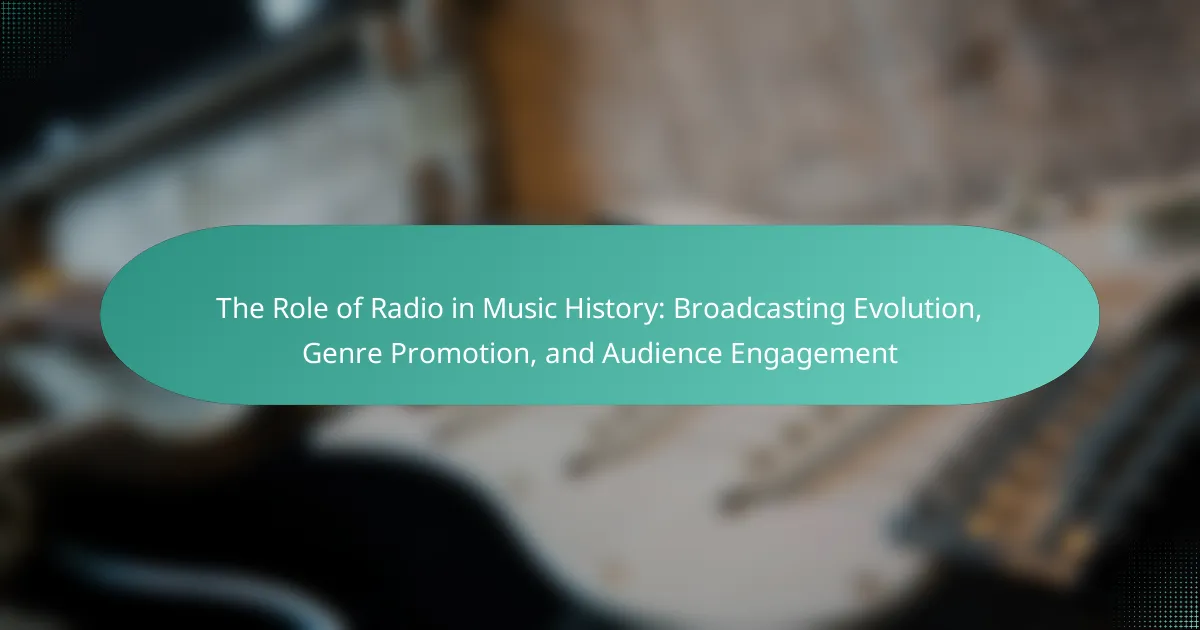
The Role of Radio in Music History: Broadcasting Evolution, Genre Promotion, and Audience Engagement
Radio has significantly influenced music history by serving as a key medium for music distribution and audience engagement. Since its emergence in the 1920s, radio has transformed music consumption, promoting various genres such as jazz, rock, and pop, while introducing listeners to new artists and trends. It plays a vital role in shaping cultural identity […]
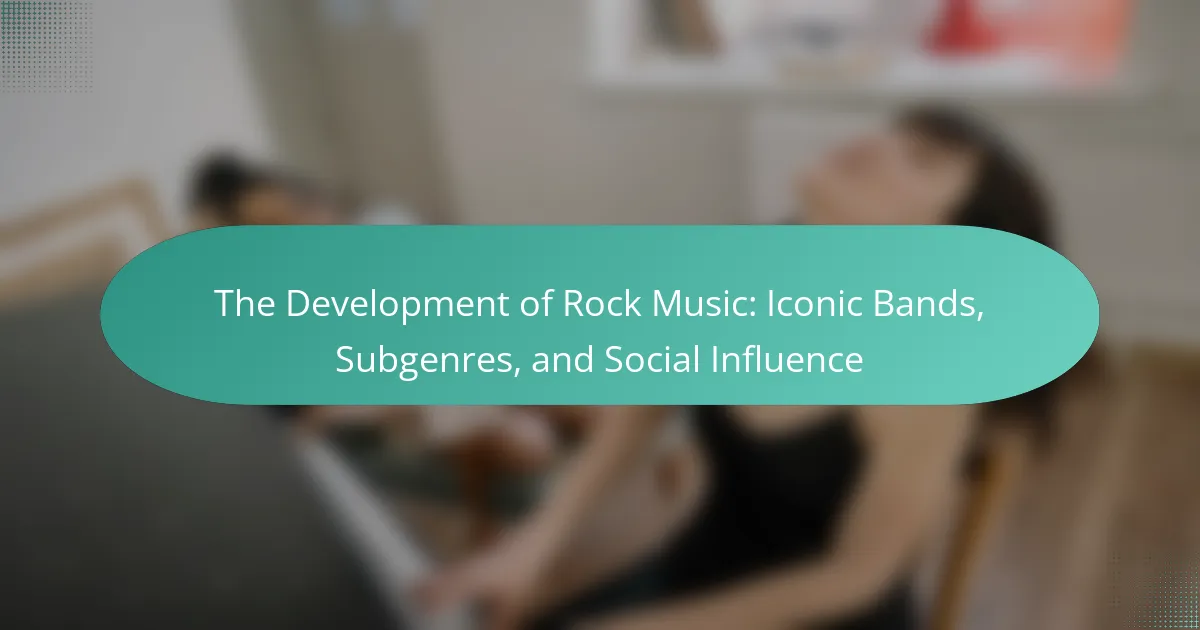
The Development of Rock Music: Iconic Bands, Subgenres, and Social Influence
The article focuses on the development of rock music, tracing its origins from the 1950s and its emergence from genres such as rhythm and blues, country, and gospel. It highlights influential figures, including Chuck Berry and Elvis Presley, and iconic bands like The Beatles, The Rolling Stones, Led Zeppelin, and Pink Floyd, which shaped the […]
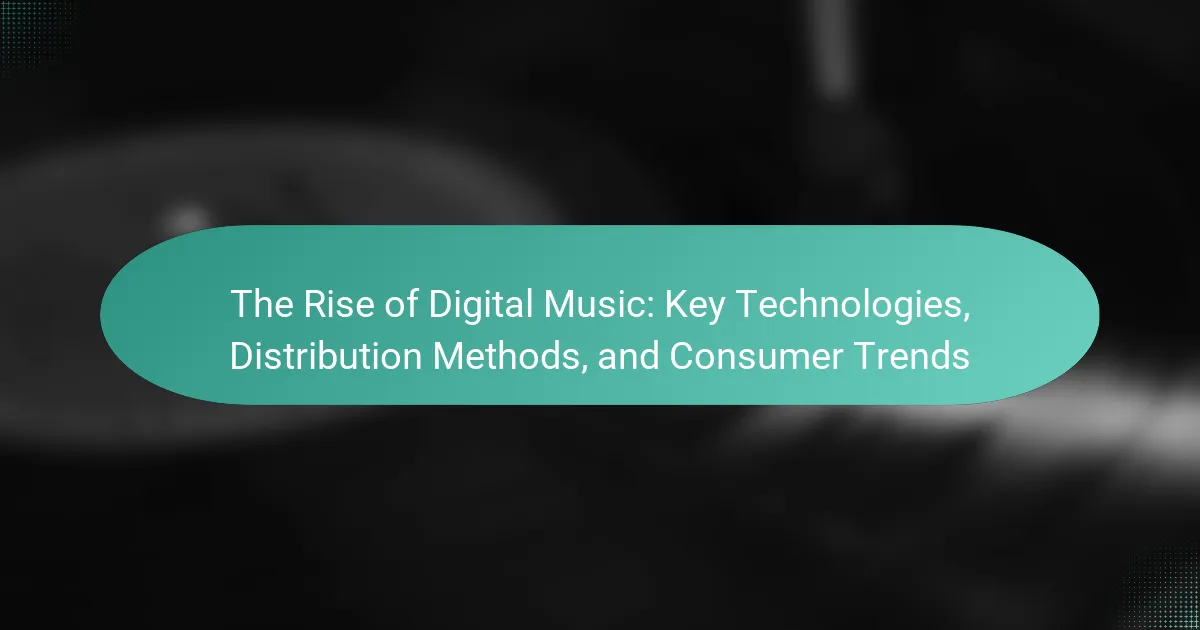
The Rise of Digital Music: Key Technologies, Distribution Methods, and Consumer Trends
The article focuses on the rise of digital music, highlighting the transition from physical formats to digital formats for music consumption. It details the emergence of MP3 technology in the late 1990s, which enabled compressed audio files and facilitated music sharing via the internet. Key platforms such as Napster and iTunes transformed music distribution, leading […]
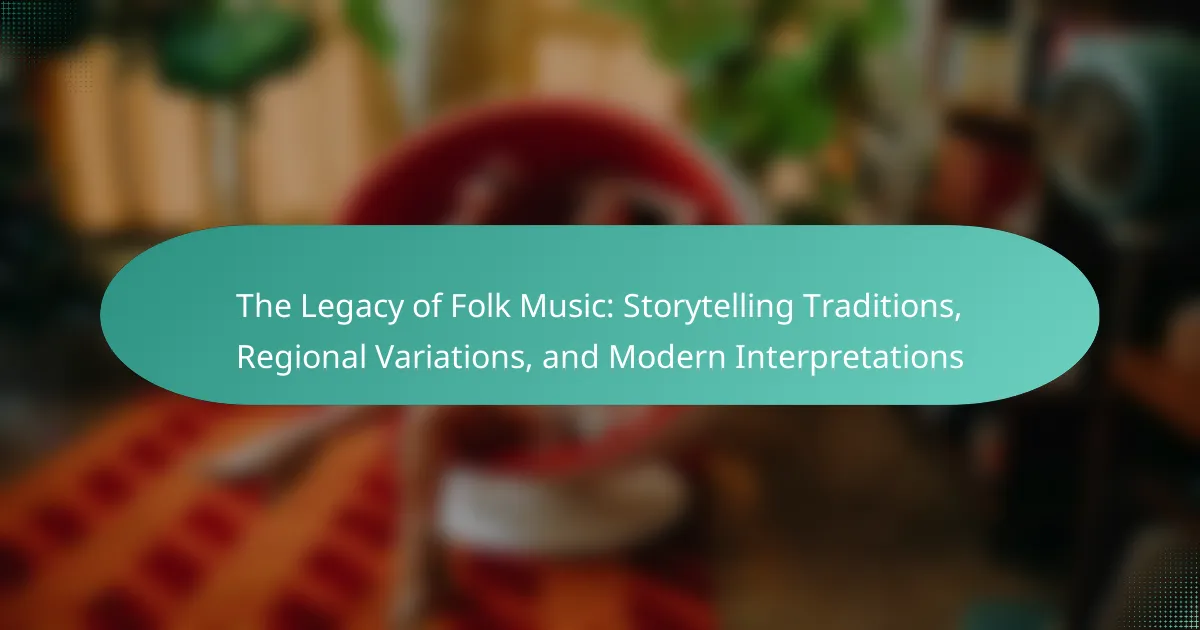
The Legacy of Folk Music: Storytelling Traditions, Regional Variations, and Modern Interpretations
Folk music is a genre rooted in traditional cultural narratives and communal storytelling. It plays a significant role in preserving the history and values of communities through distinct musical styles and instruments, showcasing regional variations. The article explores how folk music has influenced modern genres, with contemporary artists integrating traditional elements and adapting themes to […]
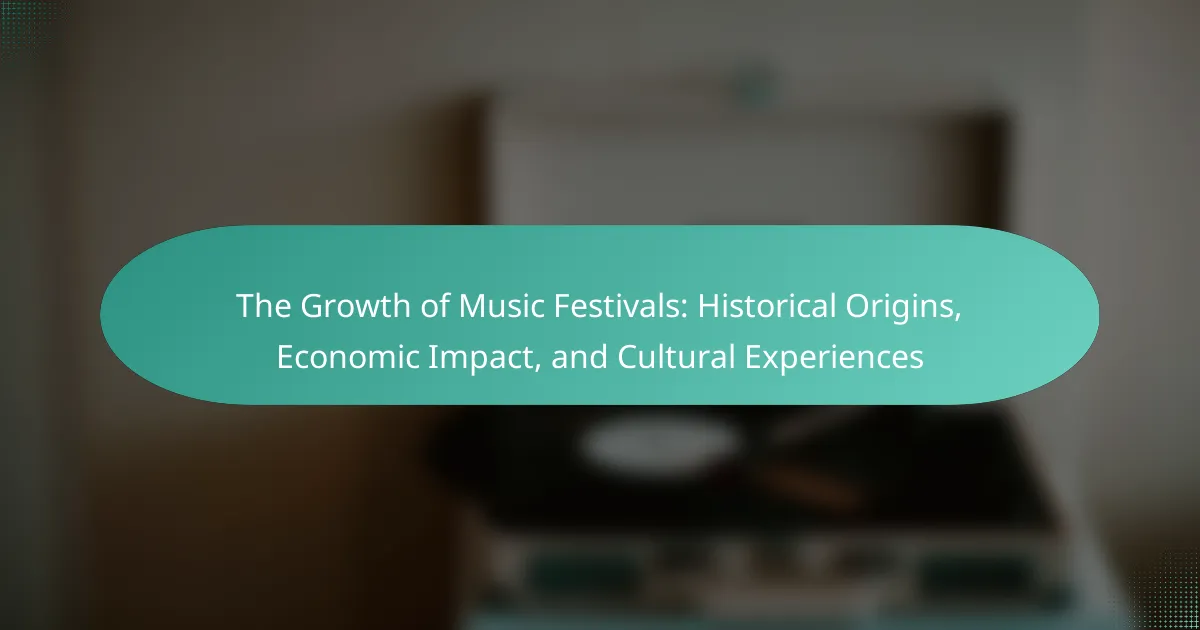
The Growth of Music Festivals: Historical Origins, Economic Impact, and Cultural Experiences
Music festivals are large-scale events centered around live performances, often rooted in historical traditions tied to religious and seasonal celebrations. This article explores the evolution of music festivals from their origins in ancient Greece to their modern-day significance, highlighting their economic impact through tourism and local business revenue. It examines how festivals like Woodstock have […]
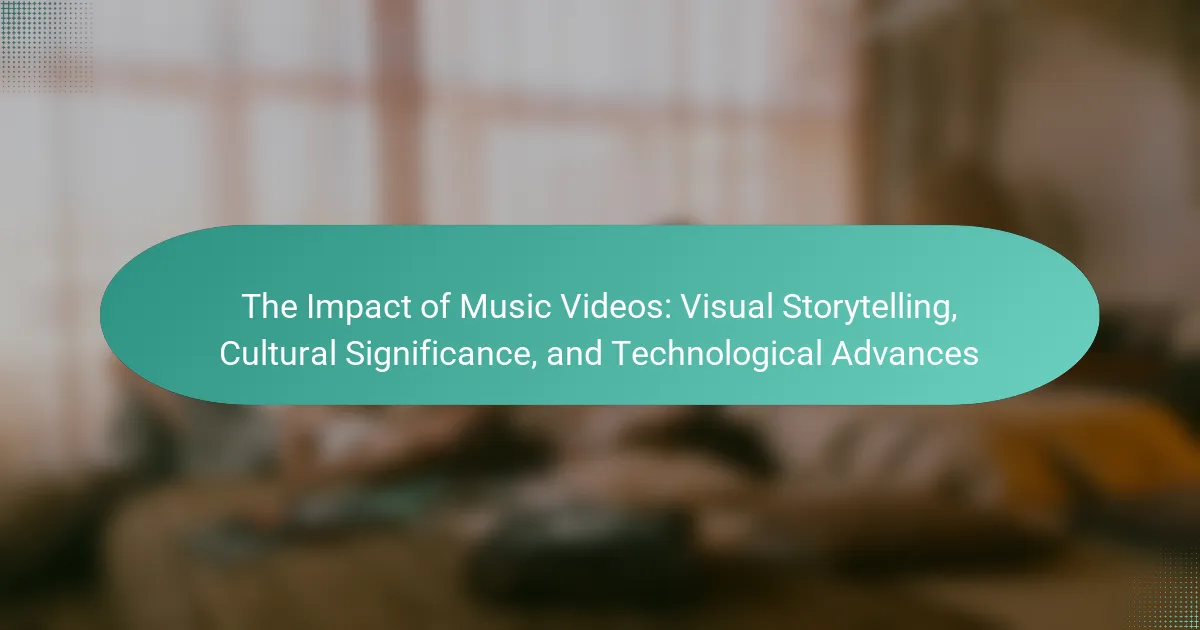
The Impact of Music Videos: Visual Storytelling, Cultural Significance, and Technological Advances
Music videos are a significant medium that enhances visual storytelling by merging audio and visual elements to create narratives that align with song lyrics and emotions. This combination fosters deeper audience engagement, as research indicates that 80% of viewers retain information more effectively when visuals accompany audio. The article explores the cultural significance of music […]
